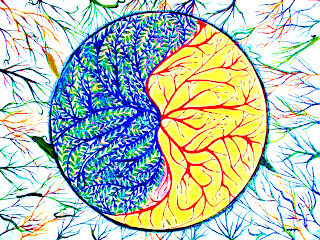The Defragmentation of the Empathic Space
One unfortunate consequence of the increasing sophistication and ubiquity of technology has been the reduction of empathy and compassion in everyday life. Due to the distracting effect of mobile computing, the average individual disconnects from his or her immediate environment and the people within it in favor of communication with a small network of nonadjacent friends, either through phone, text, chat or e-mail. They are not necessarily engaged with the space around them and do not actively pay attention to, empathize with, or feel compassion for others in the immediate vicinity.
In order to reverse the trend of empathic fragmentation that leads to lower levels of everyday compassion, the neural mechanisms behind compassion development must be revealed and methods for augmenting compassion must be designed and researched. This would then allow us to introduce a new level of social awareness into our technological dynamic by way of an ambient intelligence that leverages intimate media to effect both the level of concern and intimacy felt by an individual towards others.
In order to reverse the trend of empathic fragmentation that leads to lower levels of everyday compassion, the neural mechanisms behind compassion development must be revealed and methods for augmenting compassion must be designed and researched. This would then allow us to introduce a new level of social awareness into our technological dynamic by way of an ambient intelligence that leverages intimate media to effect both the level of concern and intimacy felt by an individual towards others.



Comments